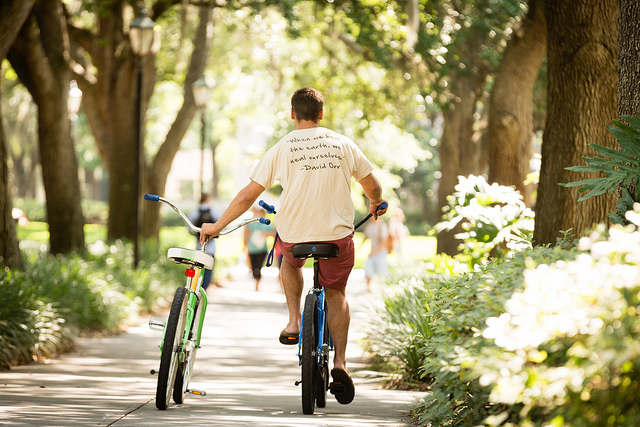The Rollins Sustainability Program recently introduced EcoReps, a new peer-based recycling education initiative.
The EcoReps, identified by their distinctive buttons and decals that read “EcoRep: ask me about recycling,” are a group of about 30 student volunteers trained to guide their fellow students about recycling at Rollins
The program is the brainchild of Rollins’ students and sustainability coordinators, Morgan Laner ‘18 and Gabbie Buendia ‘19. Together, they compiled the most important information on the procedures and history of recycling at Rollins.
“The goal of the new EcoReps program is to help expand our recycling education efforts at Rollins College. Over the past few years, the sustainability program has focused a lot of attention on improving our recycling program and much of that has to do with teaching the campus how to properly recycle and why it is important,” Laner stated.
Some of the most important recycling information available from the EcoReps is what can and cannot be recycled. The most common recyclables at Rollins are clean cardboard, paper, and plastics #1 and #2.
The most common contaminants—non-recyclables that can ruin an entire batch of good recyclables if put into a recycling bin—are food and plastics #3 – #8.
While this may seem simple on paper, in practice not everyone knows how to locate the plastic number on their iced coffees and sushi containers—both of which are #5, non-recyclable—or that the wax coating on a Starbucks cup makes it non-recyclable.
The honors thesis research of Environmental Studies student Courtney Banker ‘16, who analyzed nearly 470 pounds of trash and recycling from residence halls and academic buildings, revealed that much of the waste at Rollins makes its way to the wrong bin.
By weight, 62 percent of the materials in recycling bins was non-recyclable and 16 perecent of the materials in the trash bin was recyclable. The same research found that many students desired more recycling education on campus.
The motives of Laner and Buendia are not exclusive to helping Rollins become more sustainable as an institution; they also wish to improve the habits of students as individuals: “Our hope is that, eventually, recycling becomes an inherent and subconscious behavior for everyone on campus,” Laner continued.
The responsibilities of the EcoReps include staying up to date on the updates to Rollins recycling, sharing information on proper waste disposal with friends and classmates, intervening when improper recycling occurs, hosting tabling events on campus, and planning recycling events for their residence halls.
The EcoReps initiative has been launched in tandem with a number of other pilot programs that aim to reduce the amount of Rollins waste heading to landfills. Classrooms and restrooms in Cornell Social Science Center have received new signage that lists the most common recyclables at Rollins, as well as the most common contaminants.
The waste stations in the economics and business departments have been converted from individual units to communal stations in an effort to reduce unnecessary plastic waste and contamination in recycling.
The results of these pilot programs will dictate future strategies to eliminate waste on campus.







Be First to Comment